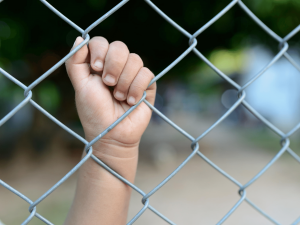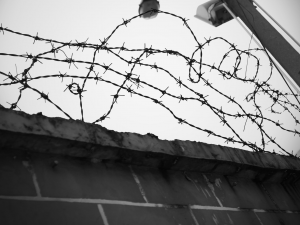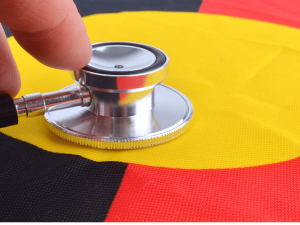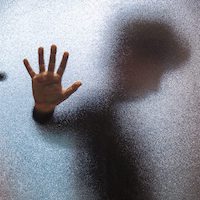 On Monday, the Council of Attorneys-General (CAG) avoided raising the age of criminal responsibility from 10 to 14. The decision to defer the conversation for another 12 months shows a blatant lack of interest in the welfare of Indigenous children.
On Monday, the Council of Attorneys-General (CAG) avoided raising the age of criminal responsibility from 10 to 14. The decision to defer the conversation for another 12 months shows a blatant lack of interest in the welfare of Indigenous children.
“We don’t lack solutions, our politicians lack political will,” stated Aboriginal Legal Service (ALS) CEO Karly Warner in response.
Australian Governments will continue to lock up children as young as 10. Aboriginal and Torres Strait Islander children will continue to be unfairly impacted by this law.
Public Interest Advocacy Centre CEO Jonathan Hunyor pleaded that “locking up ten-year-olds is harmful, counter-productive, contrary to evidence and unjust.”
Prison is no place for a child and prospects of rehabilitation rapidly decrease on a child’s first visit to detention. Research by the Australian Institute of Health and Welfare (AIHW) in 2019 stated that 94% of 10-13 year old’s sentenced to custodial sentences returned to sentenced supervision within 12 months.
Why are children locked up in the first place?
 For a person to be responsible for a crime, they have to have the capacity to be ‘criminally responsible’. When it comes to children, Australia states that this occurs the day you turn 10.
For a person to be responsible for a crime, they have to have the capacity to be ‘criminally responsible’. When it comes to children, Australia states that this occurs the day you turn 10.
In 2019, the United Nations Committee on the Rights of the Child recommended 14 years as the minimum age. Many countries across Europe have the minimum age as 14. Even our friends across the Tasman have a minimum of 13 (except in cases of manslaughter or murder).
Here are some other countries and how they legislate on this issue:
- 12 years—Canada, Greece, Netherlands;
- 13 years—France, Israel, New Zealand (except for murder/ manslaughter where the age limit of 10 applies);
- 14 years—Austria, Germany, Italy and many Eastern European countries;
- 15 years—Denmark, Finland, Iceland, Norway, Sweden;
- 16 years—Japan, Portugal, Spain;
- 18 years—Belgium, Luxembourg.
Why does the age need to be raised?
The laws affect a large number of children. According to the AIHW, in 2018-219, more than 570 children aged 10-14 were placed into juvenile detention. Sixty-five per cent of those children were Aboriginal or Torres Strait Islander.
There are also medical reasons for raising the age. The Royal Australasian College of Physicians (RACP) submitted a report to the CAG in favour of raising the age. In their submissions, RACP mentioned child development studies that found that children under the age of 14 lack impulse control and have a poorly developed capacity to foresee consequences.
The RACP also highlighted that “most children in the youth justice system have significant additional neurodevelopmental delays. These children also have high rates of significant pre-existing trauma.”
According to Professors of Criminology Eileen Baldry and Chris Cunneen, juvenile detention increases a child’s risk of depression, suicide and self harm. It leads to poor emotional development and results in poor education outcomes and fractured family relationships.
These laws also disproportionately affect children with cognitive impairments. Nine out of ten of young people in WA youth detention were severely impaired in at least one area of brain function, according to a 2018 study.

What is the solution?

Many types of solutions have been thrown around. Here are some of the top solutions alongside the people who have recommended them.
- Better support through acute paediatric and general mental health services (RACP)
- Support for parents struggling with mental health and drug and alcohol issues (RACP)
- Working with Aboriginal and Torres Strait Islander communities to develop culturally appropriate solutions within the community (RACP)
- Expansion to child protection services to support vulnerable children and their families (RACP)
- More emphasis on support services, treatment, early intervention and community-led diversion programs built on Indigenous culture (Law Council of Australia).
“Aboriginal children are strong, smart and resilient. But we know through our work at the ALS that Aboriginal children as young as 10 are targeted and taken into custody, at risk of being taken to a barbed wire facility, strip searched on entry, given limited access to peers, teachers and supports, and put in a concrete cell,” stated Warner.
O’Brien Criminal and Civil Solicitors supports raising and age of criminal responsibility and will continue to advocate so until the laws have been changed.
Sarah is a civil solicitor who primarily practices in defamation, intentional torts against police, privacy and harassment.
- Sarah Gorehttps://obriensolicitors.com.au/author/sarahg/
- Sarah Gorehttps://obriensolicitors.com.au/author/sarahg/
- Sarah Gorehttps://obriensolicitors.com.au/author/sarahg/
- Sarah Gorehttps://obriensolicitors.com.au/author/sarahg/





